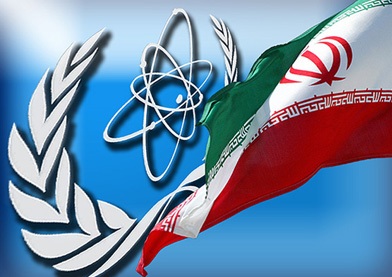Iran nuclear talks open in Almaty
 Almaty (Kazakhstan), Feb 26 : Talks between the world's top five powers plus one - United States, France, China, Russia, the United Kingdom and Germany, or the P5+1 and Iran over its controversial nuclear programme opened today in the Kazakh city of Almaty.
Almaty (Kazakhstan), Feb 26 : Talks between the world's top five powers plus one - United States, France, China, Russia, the United Kingdom and Germany, or the P5+1 and Iran over its controversial nuclear programme opened today in the Kazakh city of Almaty.
The discussions are the first since talks in June 2012 ended without a breakthrough.
Negotiators from Iran are meeting their counterparts from the U. S., France, China, Russia, UK, and Germany .
International powers suspect Iran of seeking to develop nuclear weapons - a charge Iran strongly denies, and are insisting that its purposes are purely civilian and asserting it needs enriched uranium to make medical isotopes.
Since 2010, Iran has been enriching uranium to a level of 20 percent, an important technological step towards being able to produce more highly enriched weapons-grade material.
A report by the International Atomic Energy Agency (IAEA) last week said it could not "exclude the existence of possible military dimensions to Iran''s nuclear programme".
Prior to the talks, Russian Deputy Foreign Minister Sergei Ryabkov says the success of the negotiations between Iran and the six major world powers would be dependent on the "political will" shown by both sides.
"If bargaining is to begin, firstly, political will must be demonstrated, as well as the inner resolve to move into this stage," Press TV quoted Ryabkov, as saying.
Ryabkov, who is leading the Russian delegation, called on the negotiating sides to "stop wasting any more time."
Iran and the P5+1 group have held several rounds of talks with the main focus on Iran's nuclear energy program. The last round of negotiations between Iran and the P5+1 group was held in Moscow in June 2012.
Iran has said that if the group of six major world powers recognizes the country's rights, Tehran will remove their concerns over the country? s nuclear energy program.
The United States, Israel, and some of their allies have repeatedly accused Iran of pursuing non-civilian objectives in its nuclear energy program.
Iran rejects the allegations, arguing that as a committed signatory to the nuclear Non-Proliferation Treaty (NPT) and a member of the International Atomic Energy Agency (IAEA), it has the right to use nuclear technology for peaceful purposes.
In addition, the IAEA has conducted numerous inspections of Iran's nuclear facilities but has never found any evidence showing that Iran's civilian nuclear program has been diverted to nuclear weapons production. (ANI)